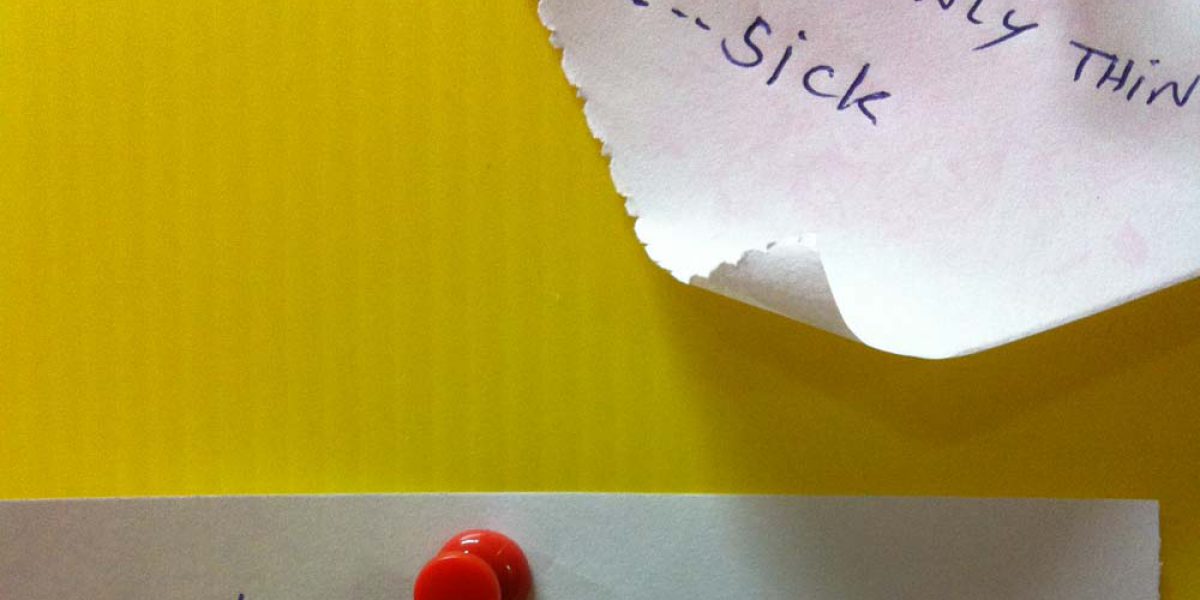Asia Pacific: Addressing the mental health needs of refugees
19 July 2013|Dana MacLean

Bangkok, 19 July 2013 — Depression, anxiety and post-traumatic stress disorder (PTSD), while frequently overlooked by the governments, continue to plague more than 50 percent of all refugees and asylum seekers worldwide, according to the World Health Organisation (WHO).
“Refugees and asylum seekers tend to be more prone to suffering from mood disorders…because of the situation they are in, the journey they undertook, and the initial cause that made them flee,” said Nawinda Limamapar, the Information Assistant for WHO Thailand.
The prolonged and difficult refugee status determination process (RSD)— which can take up to three years in some cases, according to The Search, a 2012 JRS publication on RSD challenges in Asia Pacific— can exacerbate the fragile psyche of people who have been forcibly uprooted from livelihoods, homes and loved ones.
Refugees’ reactions are “normal reactions to an abnormal situation,” WHO points out.
“They could be under a great deal of stress due to the protection environment in the country of asylum, where they have no legal status and are subject to arrest and detention,” said Vivian Tan, the public information officer for the UN Refugee Agency Regional Office, based in Bangkok.
Yet urban refugees in Asia Pacific do not have enough access to adequate psychosocial services that would help them to cope, leading to the frequent occurrence of psychosomatic health problems, chronic nightmares, and other stress-related symptoms, according to UNHCR, WHO, JRS, and the Asia Pacific Refugee Rights Network (APRRN).
Living in limbo exacerbates health risks
Asia Pacific is home to upwards of 9.5 million persons of concern — 30 percent of UNHCR’s total global population of concern.
Yet “policy makers frequently ignore the mental health needs of displaced persons. Public opinion should be directed towards recognising the shared humanity between refugees and local communities, acknowledging and helping with refugees’ extraordinary struggles – rather than focusing on immigration status and cultural difference,” said Junita Calder, the regional spokesperson for JRS Asia Pacific.
Urban asylum seekers or refugees awaiting a durable solution are the most vulnerable, as they often need to find work to survive- risking arrest in many countries without the legal rights to work.
“They worry about trying to make ends meet in a difficult protection environment where they cannot be legally employed,” said Tan.
Psychologist Abraham Maslow’s 1954 Hierarchy of Needs emphasises physical health, safety, belonging, and achievements, as the fundamental basis for mental health.
But urban asylum seekers live “in a state of distress because they often live in poor physical conditions, cannot support themselves or integrate into the local community, and have little information about their future for long periods of time,” said Zarah T. Alih, Psychosocial Counselor,JRS Thailand Urban Refugee Programme, Bangkok. “It is impossible for them to establish a stabilising routine,” she added.
Suffering in silence
Urban refugees generally disperse into the population, living in obscurity to escape attention of the authorities. As such, they rarely have access to mental health care.
“There is a lack of adequate services across all sub-regions of Asia Pacific,” said Julia Mayerhofer, the Communications Officer, for APRRN.
The lack of qualified interpreters, lack of coordination between stakeholders such as UNHCR and humanitarian organisations, along with limited reach to vulnerable groups and scarce information held by authorities about the seriousness of mental health concerns of refugees, all lead to neglected mental health needs that interfere with the RSD process, according to Mayerhofer.
“The occurrence of traumatic events, stressful living situations, as well as difficulties in retelling a story may interfere with the outcomes of the RSD process. Trauma can interfere with memory and the ability to recall events,” she explained.
If UNHCR and immigration officials – often the first people that refugees encounter in the asylum country – were trained to recognise mental health problems, issues could be identified and treated at an earlier stage to avoid interfering with RSD outcomes.
Currently medico-legal reports – reports detailing the medical condition of a refugee claimant – can be submitted to UNHCR offices, such as UNHCR Bangkok, to lighten the burden of proof on the client.
“This is a necessary pre-condition to ensuring a fair process,” said Junita Calder, the advocacy spokesperson for JRS Asia Pacific.
The way forward
But providing access to mental health care alone will not provide a solution, as mental health is intrinsically connected to other issues such as safety, acceptance, and the right to work, according to NGOs.
“Urban refugees face security risks when travelling to access these services and have very little disposable income to spend on transport for follow-ups,” said Tan.
States and service providers should adopt policies and practices that address the toll that deprivation of human rights takes on health, according to APRRN.
“Sending a refugee to a counsellor will not be enough if he or she continues to suffer under these conditions,” said Mayerhofer.
Dana MacLean, JRS Asia Pacific Communications Officer
While JRS’ Urban Refugee Project targets up to 500 urban asylum seeker and refugees, to provide financial, legal, and psychosocial support services. Due to the limited budget, each family can only be supported for three months. Meanwhile, up to 80 percent of asylum seekers survive in Bangkok without any assistance or protection.
** This article first appeared in the Diakonia bi-monthly publication for June 2013.


